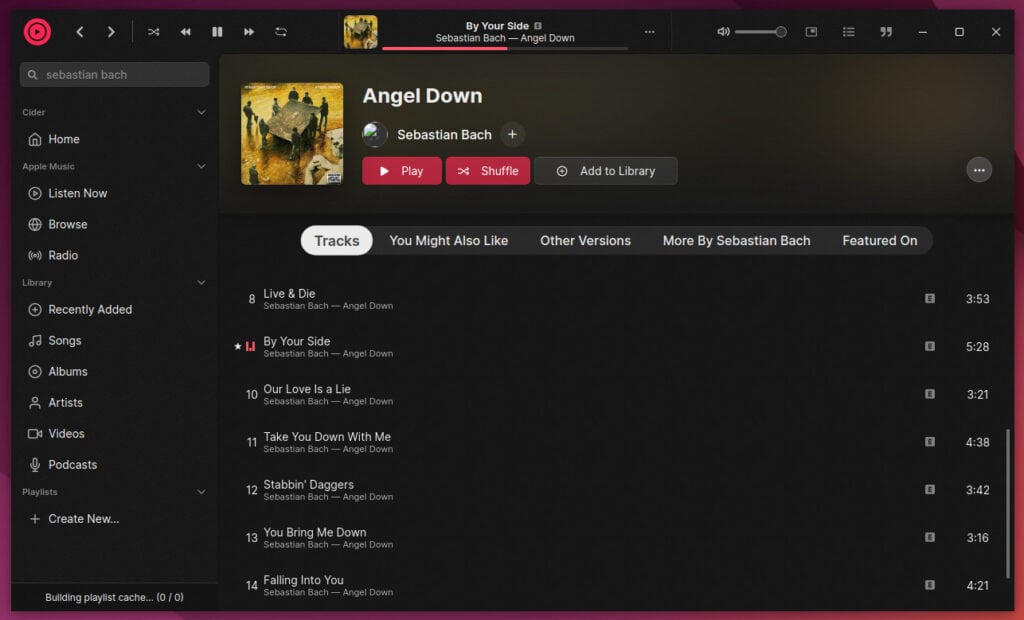If you enjoy music and have more than one streaming service, you may have discovered that Apple Music was difficult to listen to from desktop apps if you are a Linux user.
As is customary, the open-source community has moved forward in search of a suitable alternative that will provide a solution to all of these people.
The app called Cider is the answer. Cider is a new open-source community-oriented Apple Music app built on Apple’s official API, available for Linux and Windows, and macOS.
The app is based on the Vue.js and Electron frameworks, so it’s a hybrid app rather than a native one, but it works pretty well. While it does not support Apple’s lossless audio (due to API limitations), we can confirm that the quality is superior to iTunes and Apple Music’s web player.
So let’s see how quickly and easily we can install Cider under Linux so we can listen to our favorite music from Apple Music.
How to Install Apple Music Client Cider on Linux
On Linux, you can install Cider through the Flathub package system as a Flatpak package. However, if you don’t have Flatpak installed, our detailed guide, “Flatpak on Linux: What It Is and How to Install Apps with It,” will quickly walk you through the steps needed to install it on your Linux system and promptly.
First, to enable the Flathub repository to allow you to install applications from Flathub, issue the command below:
sudo flatpak remote-add --if-not-exists flathub https://flathub.org/repo/flathub.flatpakrepoCode language: JavaScript (javascript)Then, you can install the latest version of the Apple Music Client Cider on your Linux system directly from your terminal app by running:
flatpak install flathub sh.cider.CiderCode language: CSS (css)
We recommend that after installing Cider, you log out and log back into your Linux system so that the application becomes visible in your application launcher.
How to Listen to Apple Music on Linux with Cider
Then, all you have to do is search for ‘cider’ and run it.

Cider has a clean and straightforward user interface and nearly all of the capabilities we’ve come to expect from Apple’s streaming service – plus a few more.
For example, Cider allows you to follow your favorite artists, integrates Apple Podcasts, and has an excellent Remote Control function that will enable you to control playback on other devices, such as your iPhone. Unfortunately, Apple does not provide any of these services.

In addition, a convenient feature is that the application supports integration into the system tray, where it can be minimized and run in the background.

On top of that, Cider also offers live lyrics and spatial audio, though some features.
For more information about Cider, you can refer to its GitHub page or visit the project’s website.
Conclusion
As already noted, Cider is built with the official Apple Music API, making it a completely reliable application for using Apple Music in Linux. The best part – the app is open source and free to use with an Apple Music subscription.
On top of that, because Cider is built on the official Apple Music API, you don’t need to be concerned about the security of your account.
So, what are you waiting for? Just enjoy the full power of Apple Music in Linux, thanks to this great app.
